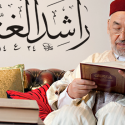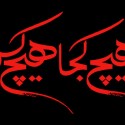Shirin Ebadi, the 2003 Nobel Peace Laureate, visited Indonesia last week.
In her presentations she came across as a person who spoke out for what she believed in — the people’s fight for freedom, rooted in her conviction that this is the basic message of her religion, Islam.
Ebadi’s conviction has brought her to odds with both authorities and activists in Iran.
She took up the case of the student survivors of the 1999 police action at Tehran University. The action, in which at least three students were killed and dozens of others injured, sparked a widespread riot that continued for more than a week.
The students’ deaths was only one of a string of cases defended by her Human Rights Defense Circle office.
Last October, she took up the case of Zahra Kazemi, an Iranian-Canadian photojournalist who died in a Tehran prison.
Ebadi has been imprisoned more than once, and has received death threats because of her controversial beliefs. A women’s group in Iran has also criticized her for appearing to accept both sharia and human rights.
Her simple responses to personal questions belie the journey of a single-minded woman in the face of many challenges.
Below is an excerpt from an interview with the Nobel Laureate.

You once said the sharia should be compatible with democracy. Could you elaborate?
Answer: Islam is a forum for consultation. The Prophet Muhammad told his successors ’always consult with the people’. It means he accepted the value of people and their opinions. The history of Islam shows the prophet of Islam and Imam Ali (a leader after the prophet’s time) also accepted other people’s opinions. Democracy means government by the majority.
But some Muslim groups believe the opinion of the majority is not important; that the majority may be making mistakes. They want to dress up ideas (and put them to) the people in the name of Islam. But Islam is not contradictory to democracy.
How would that be possible in Iran given the results of the elections, in which the so-called pro-reform forces lost?
The results of the elections did not satisfy (the aspirations) of the people of Iran.
So where would you find hope for changes in countries like yours?
Any changes in different countries depend on the requirements of the people. And in Iran, the majority demand the respect of democracy; so I am optimistic of the future of democracy in my country.
You were once quoted as saying that you were for the separation of religion and state. But some of us here believe that because Islam is a way of life the two are inseparable.
I never said that. I only said Islam is not a religion that contradicts democracy. I believe in democracy. And democracy means that the people will vote for what is good for them.
Because of your progressive view on Islam, you are labeled a Western political stooge by conservative clerics, what do you think about this label?
I always say what I believe in. I’ve never been afraid of being accused of being pro-Western. Twenty-two years ago, when the conservative newspapers wanted to insult me, they labeled me a feminist and a person who believed in human rights. Now, these same newspapers say they are in favor of human rights.
In Iran pro-reformist forces are struggling against the conservative ulema. How do you see this struggle between pro-reformists and conservative clerics in your country?
In each society there are some groups who want to take shortcuts to reach their goals. And we should convince these groups that a quick way is not a good way. To reach their goals they should resort to patience and dialog (instead of imposing one’s will).
In our country, some regions have introduced the sharia, and their priorities include ruling on the dress-code for women. If you were a ruler wanting to apply the way of Islam, what would you prioritize?
My priorities would be freedom and democracy. Because Islam and democracy do not contradict each other. (Prioritizing) the women’s dress-code would be (part of) a patriarchal culture.
What do you think about the use of religious teachings in elections?
Islamic teachings cannot be effective or have some influence during elections. What we can draw from Islam for elections is that people are free to vote for anyone they like.
Both Iran and Indonesia have long seen conflicts between tradition and modernity. How do you see this?
Modernity came to Iran 50 years ago. But at that time a culture of modernity had not been inculcated in our society yet. But at present, the situation is totally different. The culture of modernism, including things like logic and reason, have become part of our society.
Did you encounter difficulties when growing up in Iran?
The life of people can be divided into two aspects. Some have big dreams which are difficult to reach. But for others, it is easy. For example, if you get a good job you could become the boss of your office. But if you want to become president, it will be much more difficult.
People’s goals should be close to each other. When we realize one, we’ll be ready to take on to the next. By doing so, we can reach remote goals that may have initially seemed far away. But this is provided we don’t get tired.
And what has been important in the raising of your two daughters?
I have one objective in raising my children and teaching my students. I always try to make them optimistic. Because if people lose their hope then they cannot do anything. I always teach them to choose a way of life that will be useful to other people.
………………………………………………………………….
By: The Jakarta Post, Jakarta March 26, 2004.




iThere are no comments
Add yours